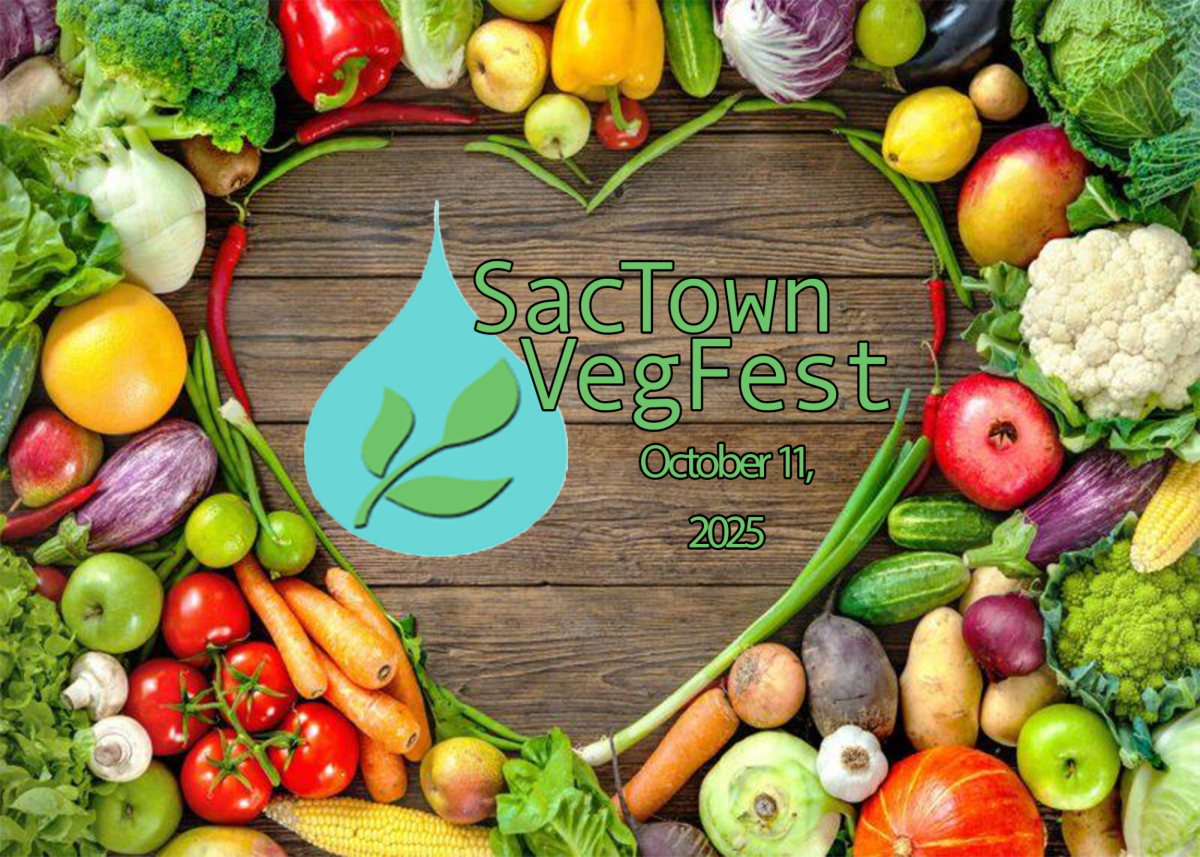Cosumnes River College is providing SacTown VegFest campus use for the second time after the nutrition program’s three-year break, on Saturday from 11 a.m. to 4 p.m.
SacTown VegFest celebrates regenerative plant-based living and is 100% vegan, according to the festival’s flyer.
CRC offers a certificate in regenerative foodways, said Serena Fuller, a professor for nutrition and foods and the department chair for CRC’s allied health.
“Because of our training, which we’re the only college in our district who has this certificate, they felt that we were an excellent partner,” she said.
Regenerative food secures the global food supply, builds a better economy, increases biodiversity, protects Earth’s water, tackles climate change and ensures a healthy ocean, according to The Nature Conservancy, a global environmental nonprofit.
Fuller said the VegFest is for everyone, not just vegans.
“It’s for vegan-curious folks, it’s for all types of eaters to come and learn and get educated on our food system,” she said.
SacTown Veg Society’s founder and lead organizer Glenn Destatte said he started the organization after attending a local VegFest that wasn’t well organized. “We could do that,” he said.
Destatte said he has been a vegan since 2006 after watching the film “Fast Food Nation” in theaters. “It’s been fun, you’d be surprised how much darn good food there is out there,” he said.
He said the main goal of the VegFest is to eat good food and find out about the impacts of diet.
Visitors can expect delicious food, live cooking demos, kitchen tours, expert speakers and exhibitors, Destatte said.
“One of the cooking demos I know is going to be about pho, another one is going to be a beet, green and farro protein bowl,” Fuller said.
Changing your diet is challenging but the festival offers ways to think about improving your health and the food system, Fuller said.
Destatte said that it’s infuriating how much promotion protein consumption receives.
“Thanks to our friends in the meat and dairy industry, people are eating almost twice the amount of protein than they need,” he said.
Destatte said that big agriculture and big food find ways to get people hooked on processed food and that they profit from health. “Profit is more important than health to them,” he said.
Big agriculture and big food are corporate farms and multinational corporations that hold a majority of the power over the world’s food systems, according to The Union of Concerned Scientists.
The Union of Concerned Scientists puts rigorous, independent science into action, developing solutions and advocating for a healthy, safe, and just future, according to their website.
Fuller said it’s important that people come down to the VegFest to learn about what the event has to offer.
“We often think about gasoline for our cars but we don’t necessarily think about what fuels us,” said Fuller.
She said that our food system accounts for about one-third of our greenhouse gas emissions and is a contributor to malnourishment, which comes in the form of over and under nutrition.
Fuller said she hopes people leave with curiosity about how food comes to their plate.
“With that curiosity, further interest and hunger to want more,” she said.
Fuller said if visitors were really interested they could take the classes our campus has to offer such as plant-based nutrition, plant-based food principles and preparation, and sustainable agriculture. She encourages students to show their support at the event so the school can continue to host events like this that benefit students.

